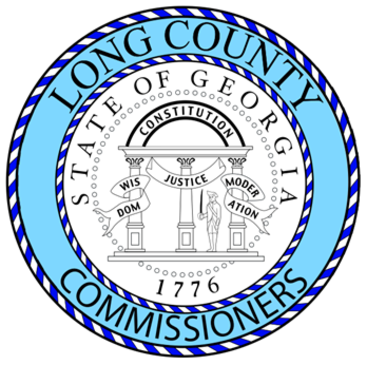The Long County Commissioners looked into the future while having a sometimes tense discussion on infrastructure Tuesday, during a regular work session.
The county has arranged for independent monitoring of projects like paving of streets in subdivisions but Commissioner Mike Phillips said, “There is no backbone in this policy.” The commissioners are concerned that streets in subdivisions need repair too soon after the county accepts them.
County Manager Frank Etheridge passed out copies of Jackson County’s land use and development code, saying it could be used as a model for a new code for Long County. Commission Chairman Robert Parker said he thought the commissioners should not examine the details of a new code but that the planning and zoning board and a committee should work on a code and give the commissioners a final draft for adoption. ”Nobody here is an engineer; nobody here is an architect,” he said.
Etheridge said the need to adopt a new development code supported the need for a moratorium on permitting subdivisions, an idea the commissioners have discussed at recent meetings. Parker said he agreed on the need for a new code, “But I think the moratorium is going to be a no-go.”
Phillips said that nobody owns the streets in some subdivisions where the county has not accepted them for maintenance. Commissioner Clifton Deloach said he was concerned about maintenance of stop signs where developers, homeowners associations, other entities, or possibly no one at all was legally responsible.
In at least one case a Limited Liability Company had been formed to take responsibility for streets and similar matters in subdivisions but the LLC had been administratively dissolved by the secretary of state’s office. Dissolution can be for various reasons such as failure to pay the annual registration fee.
In other cases, Etheridge said, a developer may pay an engineer for a preliminary plat of a subdivision which gets county approval. Afterwards, Etheridge said, “The engineer doesn’t get paid so there’s no final plat approval.”
Phillips highlighted the confusion by saying, “You mean that I could park my car in the middle of the road and just leave it there . . . and no one could write me a ticket that I would have to pay?” Parker, who is police chief of Ludowici, said, “It depends on how good your lawyer is.”
“We need to make sure we don’t end up with any more orphan roads,” Phillips said.
Parker said, “I’m not sure that we shouldn’t save the current costs and hire an engineer.” Etheridge said a field inspector was present during all paving operations and that many of the commissioners’ questions could be answered if the county began to hold pre-construction meetings with contractors.
To begin the process of considering future impact fees the commissioners discussed a 49-page partial draft capital assessment with its author, Bill Ross, a planning consultant. The document projects Long County’s needs between now and the year 2040 and considers revenue to meet those needs.
The Georgia Department of Community Affairs says impact fees are one-time fees charged to land developers to help defray the costs of expanding capital facilities to serve new growth. The impact fee act was passed in 1990 and links measures like the Georgia Planning Act of 1989.
The draft document, presented for discussion, projects future growth and what services will be needed in the future. The projections are used for considering future impact fees.
Examples of possible projects in the future include a new law enforcement center and a precinct in the Elim Church Road area, almost $14 million for road improvements, four new fire stations and replacement of current fire trucks, new fields and buildings for parks and recreation and other areas.
The commissioners appeared ready to vote to continue the capital improvement planning at their March 5 meeting. One of the state requirements for impact fees is naming a committee of not more than 10 people to advise on the process as it moves forward.
Parker can be contacted by email at joeparkerjr@hotmail.com.

